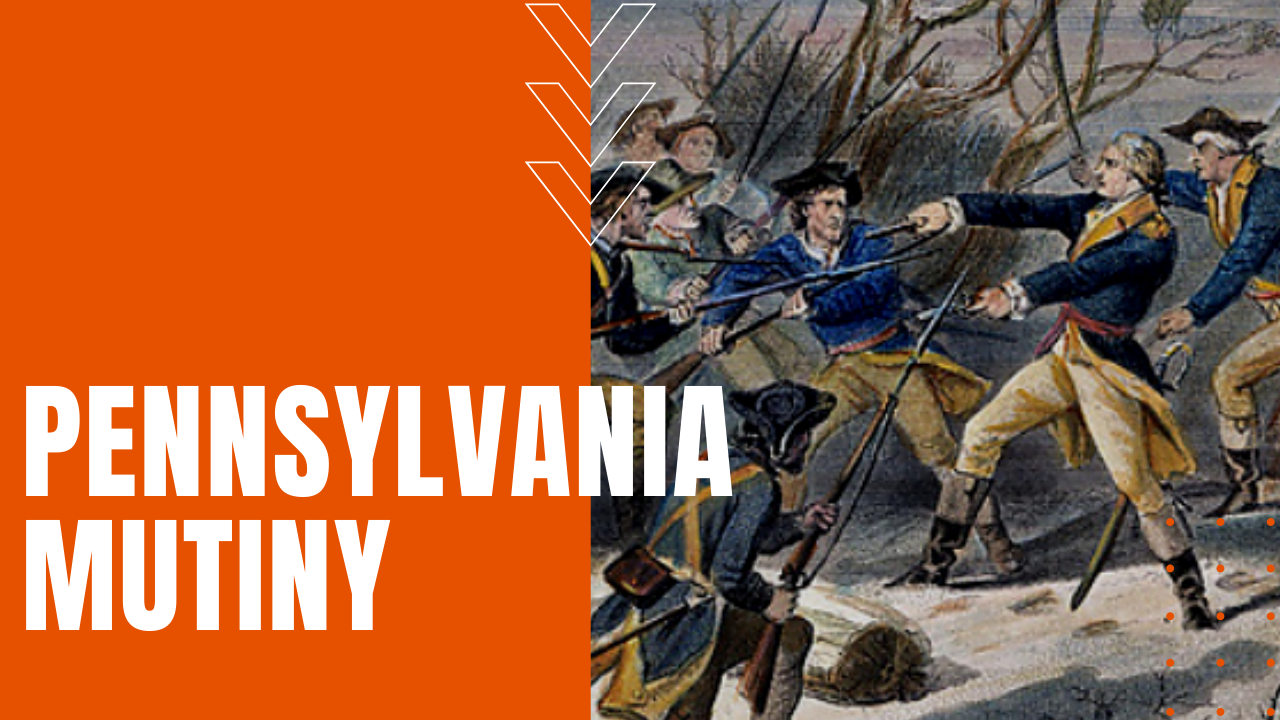Pennsylvania Line Mutiny

Considered the most successful and consequential insurrections during the Revolutionary War, on January 1st, 1781, the soldiers of the Pennsylvania Line held a raucous New Year’s Day celebration. That evening, soldiers from several regiments armed themselves and prepared to depart the camp without permission, complaining of low pay, horrendous living conditions and a mass insistence that their three-year enlistment terms had expired.
Murderous Mutiny of Pennsylvania Line
Officers led the remaining orderly regiments to quell the uprising, but after a few warning shots by the mutineers, the orderly regiments joined with the mutineers. Captain Adam Bitting, commander of Company D, 4th Pennsylvania Regiment, was fatally shot by a mutineer who was attempting to kill a lieutenant colonel. As a result, all 11 regiments under the command of General Anthony Wayne abandoned the Continental Army’s winter encampment at Morristown, New Jersey.
When the English caught wind of the mutiny, British General Henry Clinton sent emissaries from New York to meet with the mutineers, offering full pardons as well as full pay in exchange for joining the Redcoats. Instead, the men turned south towards Princeton, which they captured on January 3rd, setting up temporary headquarters before commissioning a Board of Sergeants led by William Bouzar.
General Wayne followed his errant soldiers to Princeton, and when he had listened to their grievances with a sympathetic ear, the mutineers showed their ongoing patriotism by handing over Clinton’s men for eventual execution. On January 5th, the Supreme Executive Council of the Commonwealth of Pennsylvania learned of the mutiny, and immediately dispatched council president Joseph Reed to resolve it. That same day, George Washington issued a circular letter to the Continental Congress, begging yet again for material aid to the army, citing the soldiers’ deplorable living conditions that lead to the mutiny of the Pennsylvania Line.
Response to Mutineers
Knowing the mutineers would have public sympathy on their side, the government had no choice but to negotiate. Talks went rapidly, as the soldiers distilled their grievances down to one primary issue—that men who had enlisted in 1776 and 1777 be immediately discharged, at the same time given the opportunity to reenlist for a new bounty of $20.00 if they so desired. Half the men accepted discharges, while the other half took furloughs coupled with bonuses for reenlistment. Those who reenlisted formed the Pennsylvania Battalion, which went on to participate in the southern campaign.
The excellent terms prompted 200 New Jersey soldiers stationed at Pompton to follow suit with their own mutiny, only this time the response was different, when General George Washington ordered New England soldiers to disarm their New Jersey compatriots, before executing two of the leading mutineers.
